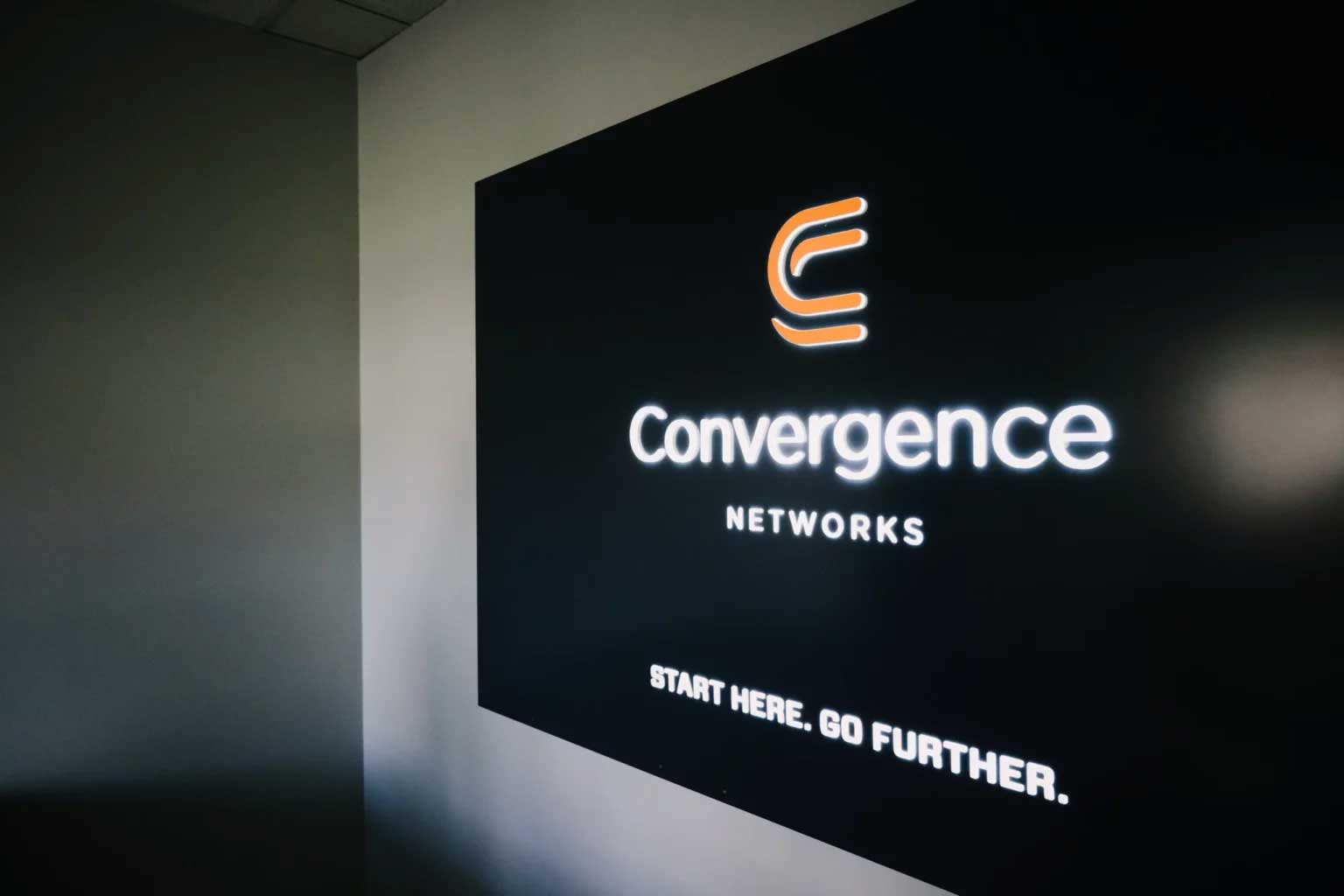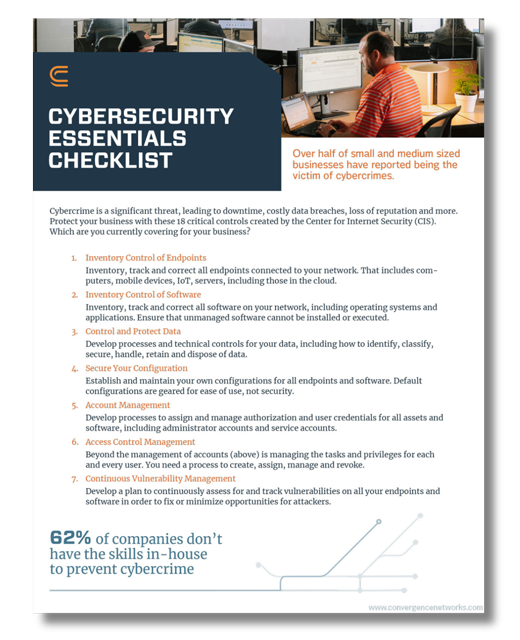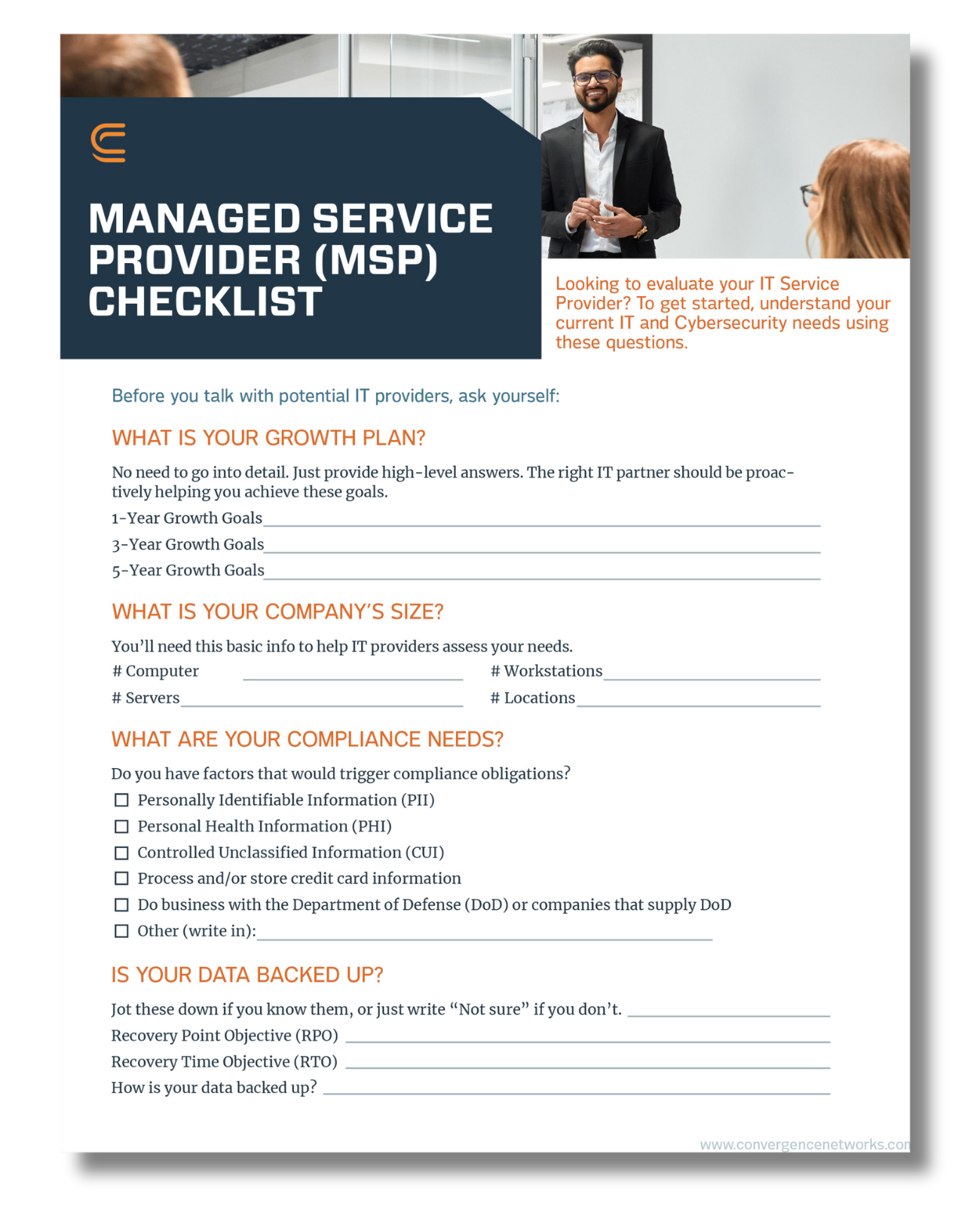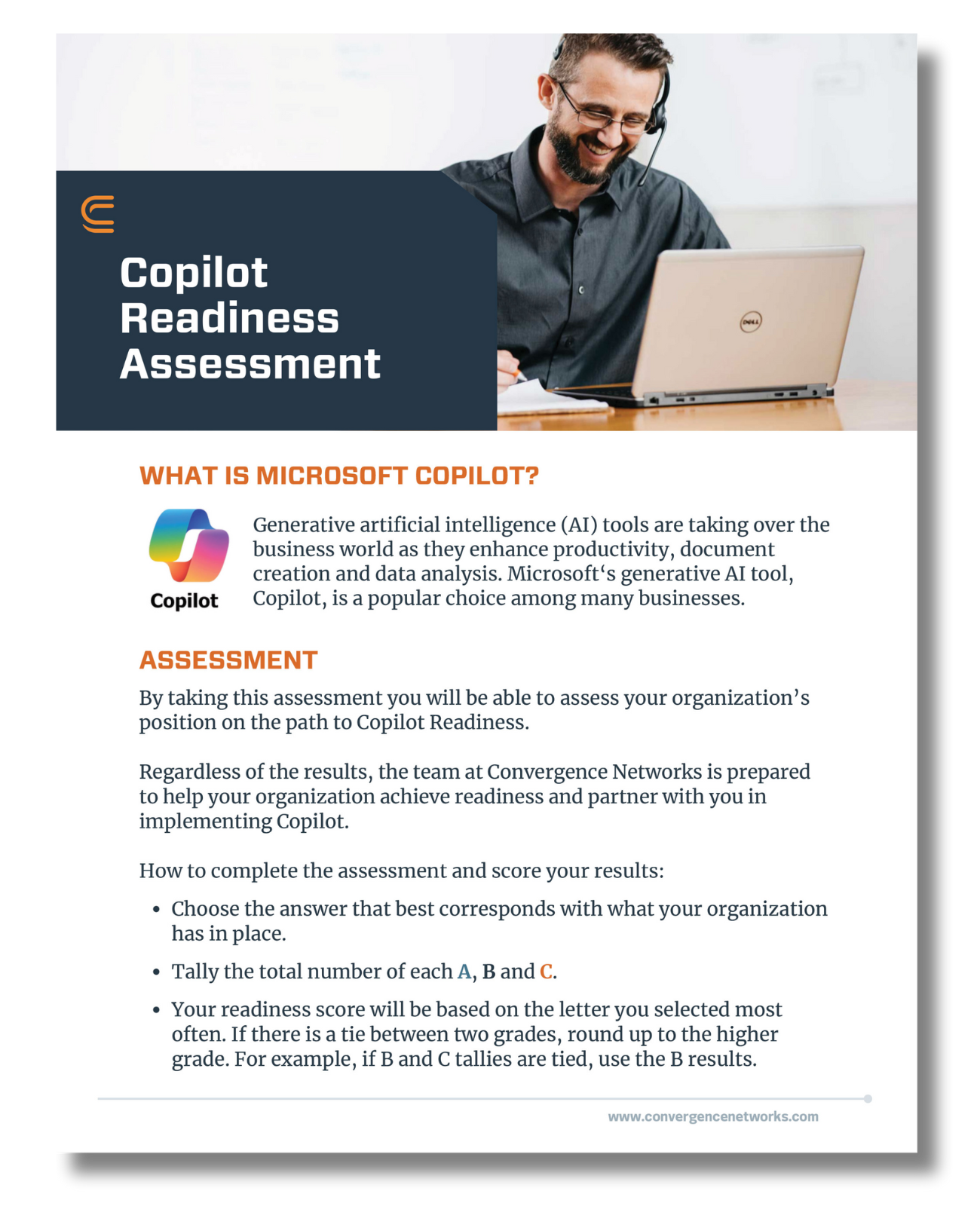Let Us Protect Your Data
Data loss was usually blamed on user error and natural disasters in earlier years. But our world has changed. As technologies advance and cybercrime intensifies, your company is at greater risk of data loss. Power outages, fires and floods still pose a risk, but phishing scams and ransomware are now the top concerns for business owners.
In many cases, business leaders still have gaps in their data backup and business continuity strategy while blindly hoping for the best. We’ll help you feel confident that your data is safe and secure with our data backup and disaster recovery strategies.
Data Backup and Disaster Recovery Planning Solutions
Losing your data to cybersecurity attacks or human errors can be stressful. Our experts specialize in providing you with all-encompassing data backup and disaster recovery strategies to ensure your critical information is secure and easily retrievable.
Our goal is to ensure your business remains operational by creating a reliable backup infrastructure that protects your valuable data and mitigates the risk of any unexpected disasters. We know how costly downtime can be, and our solutions help minimize that downtime so your team can get back to doing what you do best.
We will support your business by monitoring recovery solutions, automating data backups and proactively addressing potential risks as they arise.
Here are just a few of the benefits our data backup and disaster recovery solutions provide:
- Minimize data loss and maintain business continuity
- Reduce downtime and speed up the recovery process in the event of a disaster
- Ensure secure, encrypted backups that protect your sensitive data
- Automate regular backups and testing for seamless disaster recovery
- Enable fast access to critical data when needed
- Comply with industry standards and regulations for data protection

Our Experts Are Here for You
Why choose our data backup and disaster recovery services? Our group of experts. We prioritize employing and retaining helpful, knowledgeable people who are here to support your business.
As we support your business, we create customized, scalable solutions that fit your business at any time. Whether your business takes off or slows down, we can quickly change your strategy to fit your current needs.
If you are unsure about the integrity of your backup solution, contact us to discuss the options that work for you
All of our customers receive a formal business impact analysis as part of their service plan onboarding which is reviewed and updated periodically with the assigned vCIO as business needs evolve.
Why Choose Convergence Networks?
Don’t settle for a quick fix when you need a long-term solution. Choosing the first backup service you find might not be the right one for you. We will create a solution that fits your needs and ensures security protocols are met and provides quick recovery or access when needed. When you leverage Convergence Networks, you’ll receive:
- Proactive support: As a provider of data backup and disaster recovery services, we focus on ensuring your data is safe before disaster happens, saving you hours of redoing work and costly downtime.
- Cost-effective solutions: We’ll create a strategy that not only addresses your goals and challenges but fits with your business needs.
- Expertise: When disaster strikes, our team of experts is there to help with your disaster recovery. Before that, we take every step necessary to make sure it doesn't happen in the first place.
- Dedicated services: Our local experts are here to offer you personalized support. A team member is always available to answer your questions and help you recover your data.


Don’t Lose Your Precious Data
You and your team have worked hard to create the data, documents and other important files to create your business; don’t lose them if they are unprotected. Nobody wants it to happen but natural disasters, human error and cyberattacks can all cause you to lose your data.
We’ll help you stay proactive with our data backup and disaster recovery services.
Frequently Asked Questions About Data Backup and Disaster Recovery
A business continuity and disaster recovery plan outlines how to keep your business operational or quickly restore operations after a disaster, whether it’s natural or man-made. The combined plan will ensure that your business operations keep running despite unexpected issues, and ensure your employees know how to keep working after a disaster.
A disaster is anything that affects the continuance of your company and can include:
- Fires
- Tornados, hurricanes and other weather related disasters
- Sinkholes
- Floods
- Global pandemic or other medical issues
- Data breaches
- Computer crashes
Disaster recovery plans and continuity plans will keep these things from shutting down your business. The plan designates who does what if a disaster hits so everyone knows what their responsibility is. Also, it outlines how each computer system or stored data is backed up and protocols for recovery, including emails, databases, files and other stored data. The plan will protect your revenue and keep your customers happy.
Data backup and disaster recovery services are the processes and systems that ensure your company’s data is securely stored and can easily be recovered in the event of a disaster. This includes data that is deleted accidentally by human error, natural disasters or hardware/software failures, or data purposefully deleted by cyber attacks. Data backup involves creating copies of your important files, while disaster recovery outlines the steps to restore them and keep your business running smoothly.
Data is likely one of your most valuable assets, just as it is for many other businesses. When your customer information, financial records and operational data are lost, it can cause significant downtime and financial loss. When you have a solid data backup and disaster recovery plan in place, you will ensure that you can recover from any unexpected disruptions quickly. This minimizes downtime and protects your business from permanent data loss.
The frequency with which you backup your data depends on multiple factors:
- The amount of data you are willing to lose in the event of a disaster, whether it’s an hour’s worth, five hours, or even a full day.
- The volume of data your business handles
- How critical the piece of data is to your daily operations
- Your industry and the backup recommendations you need to assure regulatory compliance
Your business could decide to back up every few hours, once a day or less frequently. For all of our clients, we recommend ensuring that backups are done daily at a minimum. For some clients, an hourly backup ensures that nothing is lost. A good backup and disaster recovery plan will automate these processes, ensuring that all backups happen at a consistent interval and don’t interrupt your workflow.
The comprehensive disaster recovery plan we create with you will cover a variety of scenarios, including:
- Natural disasters like floods, fires and earthquakes
- Hardware and software malfunctions
- Accidental data deletion
- Cyber attacks and data breaches
Our goal is to provide you with a data backup and recovery plan that includes a clear, actionable strategy for recovering data and restoring operations after any type of disruption.
On-site data backup involves storing copies of your data on physical hardware located within your office or facility, such as external drives or servers. Cloud-based data backup, on the other hand, stores your data on remote servers managed by a cloud provider. Cloud-based solutions offer several advantages, including remote accessibility, scalability and off-site storage that protects your data even if your physical location is affected by a disaster.
Unfortunately, there’s no way to know; it all depends on your business, the disaster that caused the data loss, and the strategy we’ve created. Our well-executed plans will allow your business to recover data quickly, in a few short hours or less, depending on the nature of the disaster and the tools we have in place for you. We highly recommend regularly testing your disaster recovery procedures. This way, when the worst happens, you’ll know what each step of the plan is. Regularly testing the procedures also informs us how efficiently your systems can be restored.
A strong disaster recovery plan includes several critical components:
- A regular and automated data backup schedule
- A clearly defined process for restoring data
- A communication protocol for internal teams and external partners
- A regularly scheduled update and test of the disaster recovery plan
Additionally, it should outline the roles and responsibilities of team members during recovery efforts to ensure a smooth and efficient restoration process.
An endpoint is simply a device on which you create and load data: Mobile phones, tablets, laptops, desktops, manufacturing machines and health system devices are all endpoints. They are the last stage in the IT system.
Endpoint backup involves protecting your data on each of these endpoints by also saving it to another location, separately. Some of this could be done automatically at a backup location such as iCloud, Microsoft Drive, etc. The caveat is that they all must be backed up individually.
A shared system backup is a solution for companies to store backup files centrally with the work accessible to all (with a permission structure as needed). Both shared system backups and endpoint backups can use local servers, cloud solutions or a combination of both.
Your managed IT provider can help you determine the best data backup solution for your business, whether that is endpoint backups, shared system backups or a hybrid solution.




















